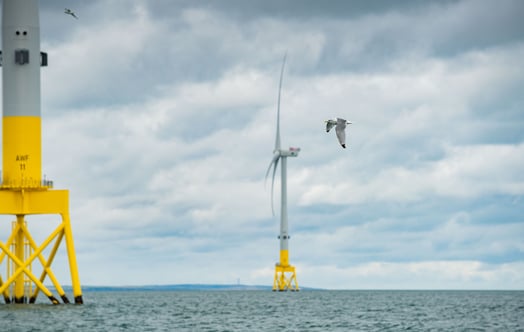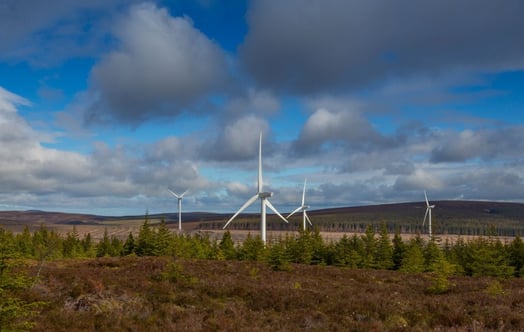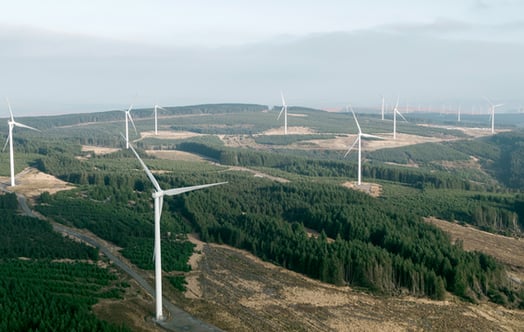
Heat networks could deliver a £2.1 billion step towards healthier, lower carbon communities in Edinburgh and the Lothians
- £2.1 billion in total benefits from heat network expansion and home retrofits over 25 years, equal to over £13,000 per household.
- £353 million in direct social benefits from improved air quality, reduced cold and damp, and better health outcomes—especially for vulnerable communities.
- Heat networks are identified as the only viable low-carbon heating solution in many dense urban areas, aligning with Scotland’s Just Transition goals.
A new report by the Edinburgh Climate Change Institute (ECCI), commissioned by Vattenfall, reveals that the deployment of zero carbon heat networks and energy efficiency upgrades across Edinburgh, Midlothian and East Lothian could generate up to £2.1 billion in combined environmental and social benefits over the next 25 years.
The research assesses the potential impact of connecting homes in Local Heat and Energy Efficiency Strategy (LHEES) zones to heat networks with energy efficiency upgrades – like insulation and double-glazing. By keeping people warmer and healthier, this integrated approach could reduce greenhouse gas emissions, ease pressure on the NHS, and improve overall wellbeing in communities historically impacted by cold and damp housing conditions.
The report, “The Socio-Economic Impact of Realising Zero Carbon Heat in the LHEES Zones of Edinburgh, Midlothian and East Lothian,” applies the UK Government's Green Book methodology to evaluate both the carbon mitigation and the co-benefits of decarbonising heat.
It covered 30 local heat zones in Edinburgh, East Lothian and Midlothian – home to over half of the area’s population – and assumed households would be upgraded to EPC Band C and connected to heat networks powered by low-carbon sources. The report, however, does not include an analysis of the costs of deploying these interventions, solely demonstrating the potential societal gains.
Health and quality-of-life improvements, including reductions in cold-related illness and air pollution, account for a significant share of the value. Excluding carbon savings, direct social gains still exceed £2,000 per household across the time period 2025 to 2050.
The study also highlights the potential of heat networks and energy efficiency measures to address socioeconomic inequality, with many of the highest projected benefits aligning with areas facing the greatest deprivation. However, the authors caution that funding, governance, and workforce shortages remain barriers to progress and call for expanded public-private cooperation, local delivery powers, and innovative financing tools.
Despite these challenges, the findings make a strong case for heat networks as a central pillar of Scotland’s decarbonisation plans. The report concludes that coordinated heat network rollouts—when combined with effective building upgrades—offer not just an energy solution, but a critical investment in community wellbeing and resilience.
Ben Carter, Business Development Manager, at Vattenfall said:
“This research shows the real-world impact of warm homes and clean air. Heat networks are not just about cutting carbon, they will also support fairer, healthier communities. With the right coordination and investment, developing heat networks can help deliver a just transition that benefits everyone.”
Jamie Brogan, Head of Climate Partnerships, Edinburgh Climate Change Institute at ECCI said:
“This report provides compelling evidence for accelerating the rollout of low-carbon heating across Scotland. It shows that reducing air pollution and improving home comfort can deliver major health and social benefits - demonstrating that climate action and social progress go hand in hand. How we manage this transition will have a real and lasting impact on people’s lives, highlighting the importance of taking a joined-up approach to delivering on our net-zero goals.”
Notes to editors:
- The full report from ECCI can be found here: Socio-economic impact of heat networks
- Vattenfall has partnered with Midlothian Council, forming Midlothian Energy Limited (MEL), to provide low carbon heat to new homes in Midlothian and progress a variety of other energy projects.
- The initial phase of the MEL Heat Network will supply over 3,000 properties at Shawfair Town and is expected to save over 2,500 tonnes of CO2 per year, the equivalent of taking 1,200 cars off the road.
- The MEL heat network will capture low carbon heat from the Millerhill Recycling and Energy Recovery Centre – an energy from waste plant operated by FCC Environment. The main energy centre will have the potential to heat up to 10,000 homes equivalent.
- Local Heat and Energy Efficiency Strategy (East Lothian Council)
- Local Heat and Energy Efficiency Strategy (City of Edinburgh Council)
- Local Heat and Energy Efficiency Strategy (Midlothian Council)



